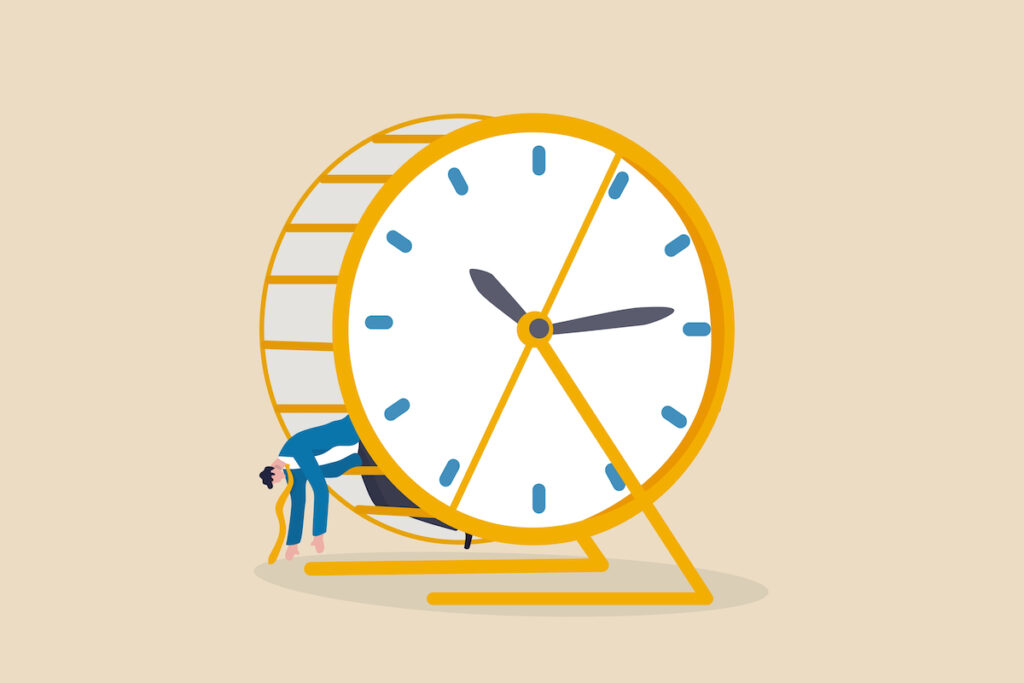
While the strain caused to the healthcare system due to COVID-19 is without precedent, it goes without saying that medical education was not immune to the COVID-19 challenges either (Bughrara et al., 2023). On top of the pre-existing concerns regarding the mental health and well-being of medical students and junior doctors (Tam et al., 2019), the pandemic introduced more conundrums (Tawse & Demou, 2022) such as:
- Online learning instead of suspended practical teaching;
- Increased risk of infection due to volunteering at UK hospitals;
- Lack of adequate supervision; and
- Questionable preparedness due to early graduation (6-8 months earlier) to support the UK hospitals in the fight against COVID-19.
Tawse & Demou (2022) captured the voices of medical students and junior doctors about their mental health and the work stress experienced during the summer of 2021, after the end of the second COVID-19 wave. They aimed to explore the key sources of work stress, barriers to accessing mental health support within their workforce and whether they received sufficient support to manage their work stress and mental health challenges.

Medical students and junior doctors faced additional challenges during the COVID-19 pandemic.
Methods
The authors interviewed 15 medical students and junior doctors working in UK hospitals and analysed the interview data using thematic analysis (Braun & Clarke, 2019). This means that the researchers aimed to identify important and relevant issues that the participants discussed in their interviews with regard to their mental health and work stress during COVID-19. Interviews allowed for the participants’ stories to be heard and enabled them to share a detailed account of their experiences while providing the interviewer with the opportunity to further explore critical matters.
The researchers asked questions regarding the participants’ experiences of work stress, the potential effect of work on their mental health, and how difficult it might be for a healthcare worker to openly discuss issues related to their mental health. They asked these questions of 8 medical students in the 4th and 5th year of their studies and 7 junior doctors, meaning doctors that graduated in the last 5 years and were enrolled in a medical training program at the time of the interview.
Results
Participants reported that excessive workloads and commitments were an inherent part of medical practice, describing their work as emotionally challenging, which has consequences for their mental health. Experiences of elevated depression and anxiety symptoms especially around the exam period were mentioned, while participants explained the need to be resilient to be able to manage both the workload and emotional demands of their job.
Medical students explained that the changes to their academic curricula induced by COVID-19 were disruptive not only for their education but also for their mental health, with isolation and lack of socialisation being additional stressors. Their accounts highlighted the disruption of education, with the need to graduate earlier (to help with the pandemic) significantly affecting their feelings of preparedness. Moreover, participants added that staffing problems resulted in junior doctors having to manage incremental overloads and shortage of personal protective equipment, which increased feelings of stress and fear of infection; while also negatively affecting the quality of care and patient safety.
The participants reported that medical cultures do not favour open discussions about mental health and value self-sacrifice and presenteeism over self-care and worker well-being. In the words of one participant:
You know even if you’re at death’s door you go into work.
On a more positive note, participants described sharing a good camaraderie with other junior level colleagues. To that end, all participants consistently reported receiving strong peer support which supported them through mental health challenges and difficult situations. Pre-COVID-19 stress-management strategies were obstructed as they were away from family and friends for long periods. Positive aspects of practicing medicine were discussed as well, such as obtaining a sense of purpose through work while performing a job that is inherently aiming to help people in need.
In terms of receiving formal support, participants identified that although there were some attempts from formal mechanisms (e.g., additional emails; psychoeducational talks), these were not sufficient or adequate and did not respond to their needs – which were more related to rest and recovery, accessibility of mental health services and support from peers. Almost half of the participants, however, were worried that any disclosure of mental health difficulties might lead to negative career implications, and most didn’t feel heard and supported by management. They felt management was absent from the pressures involved in clinical practice.

The overarching theme of being overworked and unsupported was evident in the participants’ accounts.
Conclusions
The authors concluded that medical students and junior doctors suffered significantly from both the inherent medicine stressors, but also the additional burdens brought onto the healthcare system during COVID-19, in a culture of stress around mental health difficulties that promotes presenteeism and acceptance of unsatisfactory working conditions.

In a culture that promotes acceptance of unsatisfactory working conditions, medical students and junior doctors suffered significantly during the pandemic.
Strengths and limitations
The authors suggest the simultaneous examination of both medical students and junior doctors during the COVID-19 pandemic as one of the strengths of the study. The individual accounts of such a unique cohort of participants – those who worked during the pandemic while being students or recently graduated doctors – is a main component of the uniqueness of this study, which adds to its significant contribution to research, theory and clinical practice. Additionally, the interviews and the analysis were conducted by an independent researcher, which added to the trustworthiness and credibility, as well as the ethical procedures of the study.
Combined with the ubiquity of employee silence in healthcare and its root in medical education (Montgomery & Lainidi, 2022), qualitative research is not only a methodology for further exploration of important issues in healthcare and ties to patient safety, but also a platform for medical students and junior healthcare staff to speak up about critical challenges and their need for better working conditions and organisational support, to be able to provide a high quality of care to their patients.
In terms of limitations, the authors identified the limited representativeness and transferability of their findings, due to the high homogeneity of the participants, who were mostly white British and male. This means that for example the accounts of women and BAME (Black, Asian, and minority ethnic) individuals have not been represented. Future research is needed, especially given the evidence that during the COVID pandemic, healthcare workers from BAME groups had a significantly increased risk of mortality when compared to white healthcare workers (Kursumovic et al., 2020).
Moreover, the authors noted that only participants who wanted to be interviewed were selected (selection bias) and their accounts are subjective (participant bias). This means that it is possible that medical students and/or junior doctors who have been affected the most by COVID-19 might not have wanted to participate in this study – and previous research suggests that among healthcare professionals, those who suffer the most from work stress, burnout or mental health difficulties are less to likely to take part in research and/or interventions for well-being (Quirk et al., 2018; Towey-Swift et al., 2022). Overall, this means that not all the voices have been heard and these findings do not represent all UK medical workers.

It is likely that the voices of medical students and junior doctors mostly affected by the pandemic were not captured in this study.
Implications for practice
The findings of this study produce significant implications for practice and policy, as the authors suggested:
- Design and implementation of protective measures to prevent and minimise work stress among junior staff (e.g., increase autonomy)
- Changes in leadership and management aimed at compassionate cultures where boundaries around work-life integration are promoted
- These changes need to start from the beginning of medical education, when a substantial part of healthcare workers’ professional identity is being developed
- Structural issues around staffing need to be addressed, so junior healthcare workers can get time off for recovery when needed
- Peer networks need to be integrated as a pillar of support
- The culture of silence around mental health due to fear of career implications is a major obstacle to healthcare workers’ well-being and needs to be addressed.

The stigma and silence around mental health lived experiences among healthcare professionals needs to be addressed.
Statement of interests
I have no competing interests to declare.
Links
Primary paper
Tawse J, Demou E. Qualitative study to explore UK medical students’ and junior doctors’ experiences of occupational stress and mental health during the COVID-19 pandemic. BMJ Open 2022;12:e065639. doi:10.1136/ bmjopen-2022-065639https://bmjopen.bmj.com/content/12/12/e065639.citation-tools
Other references
Braun V, Clarke V. Reflecting on reflexive thematic analysis. Qualitative research in sport, exercise and health. 2019 Aug 8;11(4):589-97.
Bughrara MS, Swanberg SM, Lucia VC, Schmitz K, Jung D, Wunderlich-Barillas T. Beyond COVID-19: the impact of recent pandemics on medical students and their education: a scoping review. Medical Education Online. 2023 Jan 1;28(1):2139657.
Kursumovic E, Lennane S, Cook TM. Deaths in healthcare workers due to COVID-19: the need 267 for robust data and analysis. Anaesthesia. 2020;75(8):989–92. 268 http://dx.doi.org/10.1111/anae.15116
Montgomery A, Lainidi O. Understanding the link between burnout and sub-optimal care: Why should healthcare education be interested in employee silence?. Frontiers in Psychiatry. 2022;13. https://doi.org/10.3389%2Ffpsyt.2022.818393
Quirk H, Crank H, Carter A, Leahy H, Copeland RJ. Barriers and facilitators to implementing workplace health and wellbeing services in the NHS from the perspective of senior leaders and wellbeing practitioners: a qualitative study. BMC Public Health. 2018;18(1):1362. http://dx.doi.org/10.1186/s12889-018-6283-y
Tam W, Lo K, Pacheco J. Prevalence of depressive symptoms among medical students: overview of systematic reviews. Medical education. 2019 Apr;53(4):345-54.
Towey-Swift KD, Lauvrud C, Whittington R. Acceptance and commitment therapy (ACT) for professional staff burnout: a systematic review and narrative synthesis of controlled trials. J Ment Health. 2022;1–13. http://dx.doi.org/10.1080/09638237.2021.2022628
Photo credits
- Photo by javier trueba on Unsplash
